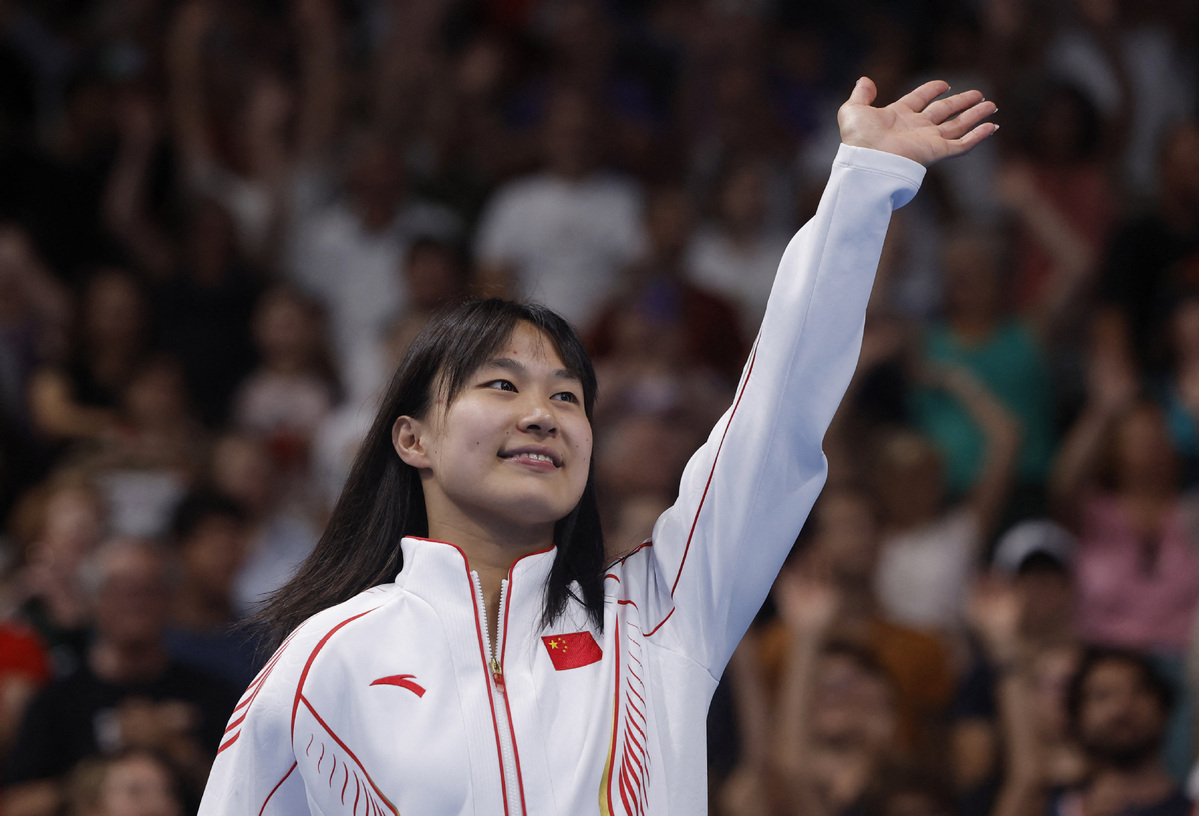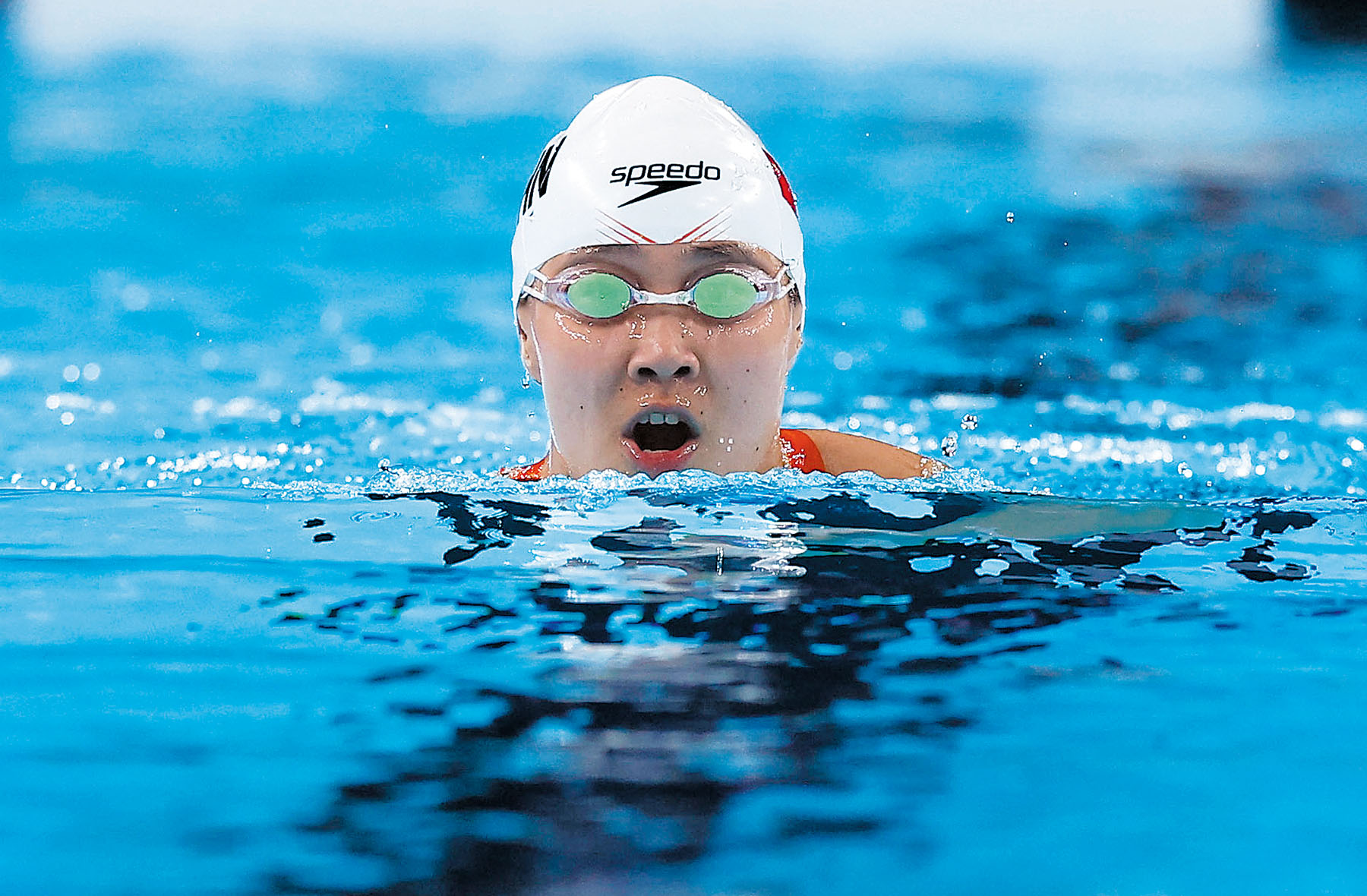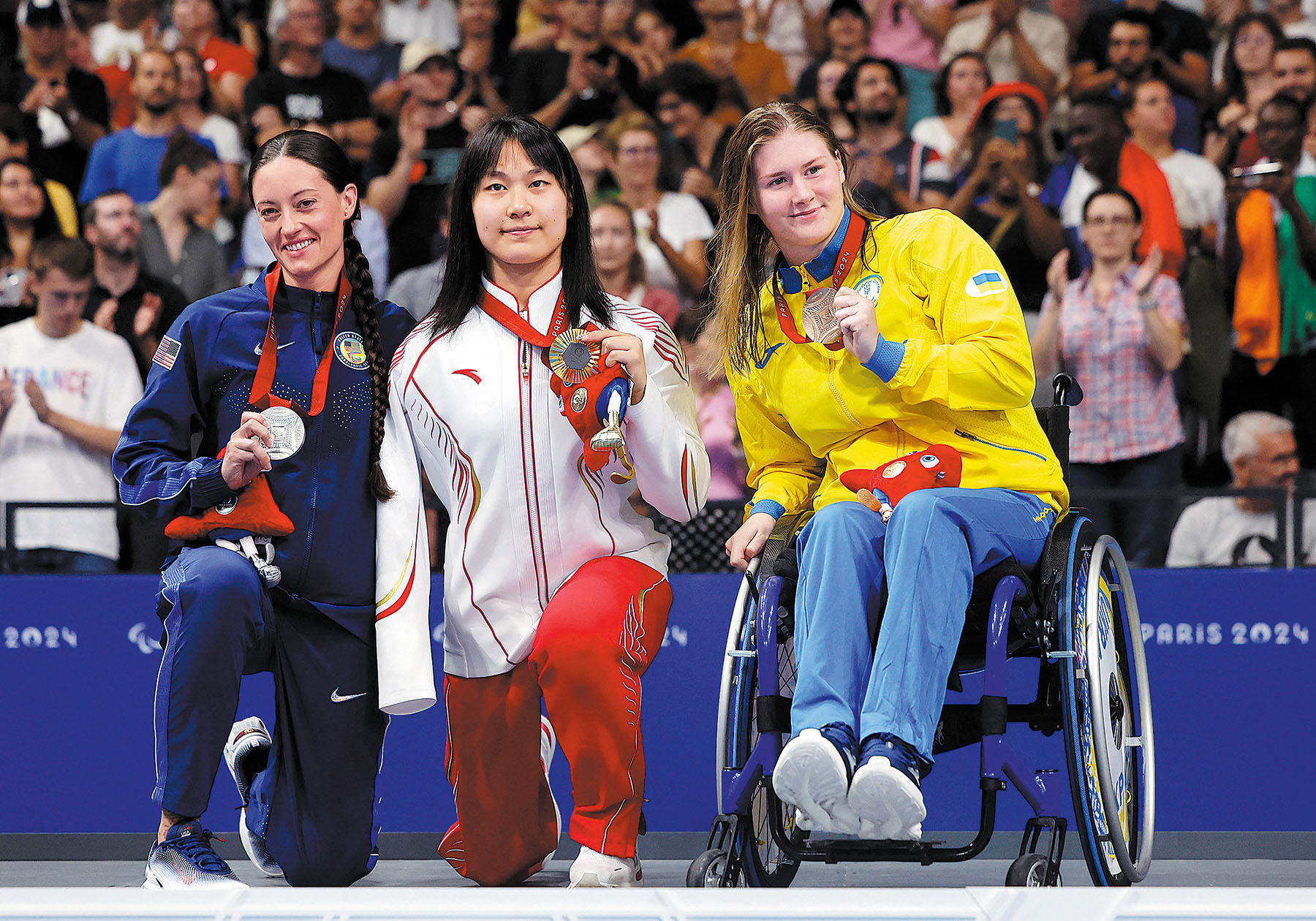Team China swimmer smashes 50m record twice in a day as she claims Games glory in Paris

Before the Paris Paralympics, Jiang Yuyan added a touch of flair to her left hand — a set of long, sparkling nails that she hoped might offer a slight psychological edge in competition.
In reality, Jiang needed no such boost. At the Paris Paralympics, she delivered a commanding performance in the women’s 50m freestyle S6 final at the Paris La Defense Arena on Aug 29, capturing gold in a time of 35.59 seconds. In victory, she not only left her competitors in her wake but shattered the Paralympic record she had set just hours earlier in the preliminaries.
“I was genuinely surprised to break the record twice,” Jiang admitted. “I’m typically a slow starter. At the Tokyo Paralympics, I didn’t perform well in this event on the first day — I didn’t even reach my usual training level.”
Three years ago, she finished just off the podium in fourth place. But in Paris, she finally made up for that.
After claiming gold, Jiang was met by American swimmer Ellie Marks, the silver medalist, who swam over to embrace her in celebration. “I swam against incredible women, and I’m very proud of all of them. I’m proud to swim with them,” Marks said.
Jiang and Marks are well-acquainted rivals, having faced off in numerous events and frequently sharing the podium. “No matter who wins or loses, we always make sure to congratulate each other afterward,” Jiang noted.
She credits her recent successes to a combination of scientific training and a professional support team. Over the past two years, she has intensified her focus on strength and explosiveness, allowing her to comfortably secure the gold in the 50m freestyle — an event once seen as a weaker spot in her repertoire.

At just 19 years old, she has already become a “gold medal machine”. She won two golds, one silver, and one bronze at the Tokyo Games. Across the 2019 and 2023 World Championships, she amassed seven gold medals, while at last year’s Asian Para Games in Hangzhou, she dominated with seven golds and one bronze.
As she competes in the Paris Paralympics, Jiang’s goal is clear: to defend her Tokyo titles and achieve even better results in other events.
“My training and skills have improved significantly over the past few years, and I’ve gained more confidence from competing on the international stage,” she said.
“In the past, I always focused on my opponents, using them as my benchmark. Now, my goal is to surpass myself.
“Each race is just one shot in time. Once it’s over, I completely put it behind me and pour all my energy into the next one.”
Three years ago, in Tokyo, Jiang was the youngest member of the Chinese delegation. Now, at 19, she feels the weight of greater expectations and admits to feeling more nervous than she did in Tokyo.
“Representing China, I feel it’s essential to perform at my highest level,” She said. “The pressure I feel comes from a strong sense of duty. My team shares this mission-driven mindset, and we consistently perform better in relay events than in individual ones.”
On Aug 30, in the mixed 4x50m freestyle relay 20 points event, Jiang and her teammates rose to the pressure admirably, winning with a world record time of 2:14.98, earning Jiang her second gold medal of the Games.
“With three strong teammates by my side today, I felt I couldn’t let them down. We needed to secure this gold medal,” Jiang said. “The pressure was greater than the day before, which made winning today even more satisfying.”
Jiang lost her right arm and leg in a car accident when she was just three years old.

She took up swimming at age 8 and by 13 she was a national champion. By 14, she had won gold at the Asian Para Games. And by 17, she had claimed a Paralympic title.
Her rise has been meteoric but it is the result of tireless dedication. While most swimmers start with breaststroke, Jiang had to begin with freestyle due to her unique physical condition.
As a swimmer who relies on the strength of just one side of her body, Jiang must master the rhythm and precision of her movements to stay afloat. Even the slightest disruption can cause her body to sink.
In 2017, Jiang joined the Zhejiang provincial para swimming team, committing to a grueling regimen of at least 10,000 meters a day. The team’s coach, Feng Jie, describes Jiang as the “ideal athlete” that every coach dreams of. Feng said she possesses a strong foundation, willingly endures the rigors of training, and even relishes the pressure and challenges of competition.
Yet, when it comes to natural ability, Feng admits, “Jiang doesn’t have an exceptional ‘feel’ for the water; her body feels heavy in the water.”
Due to her missing right arm, Jiang must make 11 more strokes than her competitors in the 50m freestyle. Feng noted that Jiang is intensely competitive, often challenging male swimmers and those with less severe disabilities.
“She meticulously studies her technique and identifies her weaknesses,” Feng said.
Despite her ongoing struggles with breaststroke, Jiang continues to push her boundaries. At last year’s Asian Para Games in Hangzhou, where she won seven gold medals and one bronze, the latter came in the 200m individual medley SM6.
It was her first time competing in the event on the international stage.
For Jiang, the freedom of gliding through the water and the thrill of standing on the podium makes the intense training and competition worthwhile.
“In the water, I don’t need prosthetics or crutches; with my own strength, I can control my direction,” she said in the documentary Above Water.
The film, which began production in 2018 and took six years to complete, chronicles the journeys of several Chinese para athletes in water-related events, including Jiang.
Now a sophomore at Beijing Sports University, Jiang hopes her story will inspire others. “By participating in para sports and competing on the Paralympic stage, many people with disabilities will see me. I want to convey that with dreams and determination, and by continually striving, we can all be seen and shine brightly,” she said.


